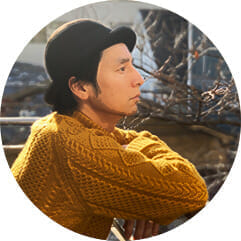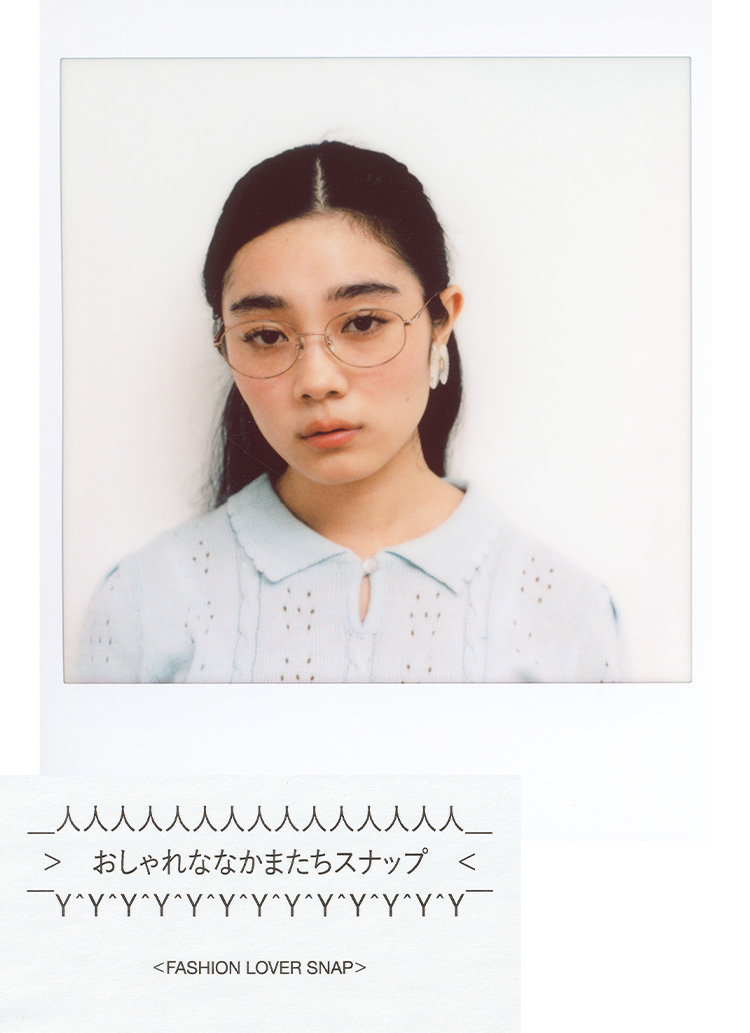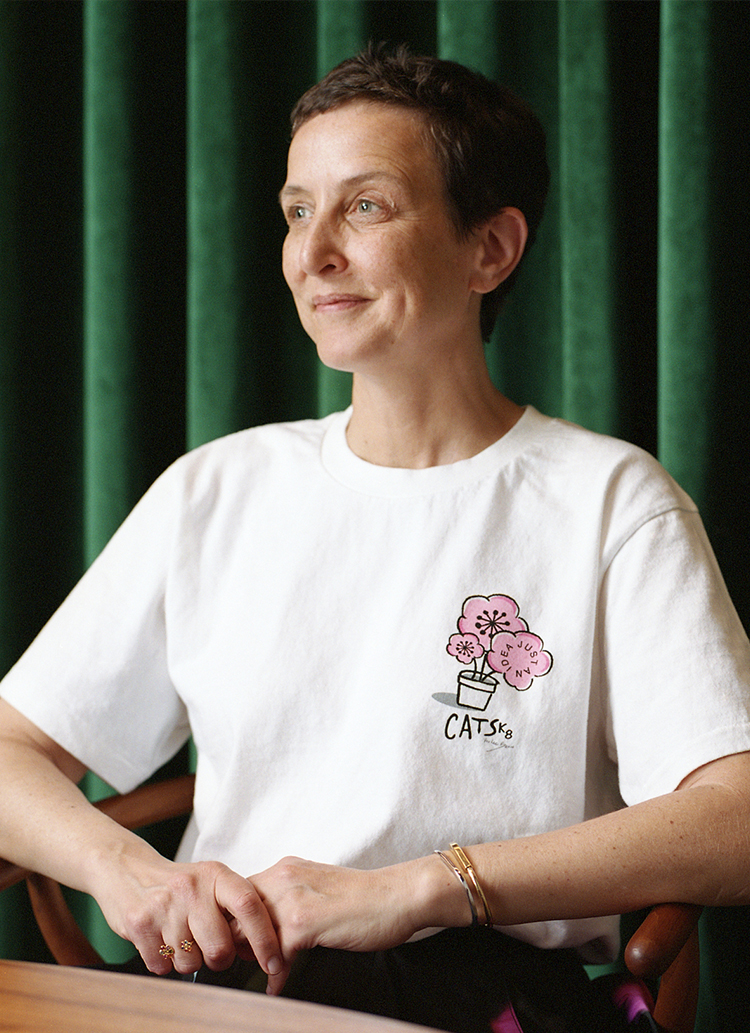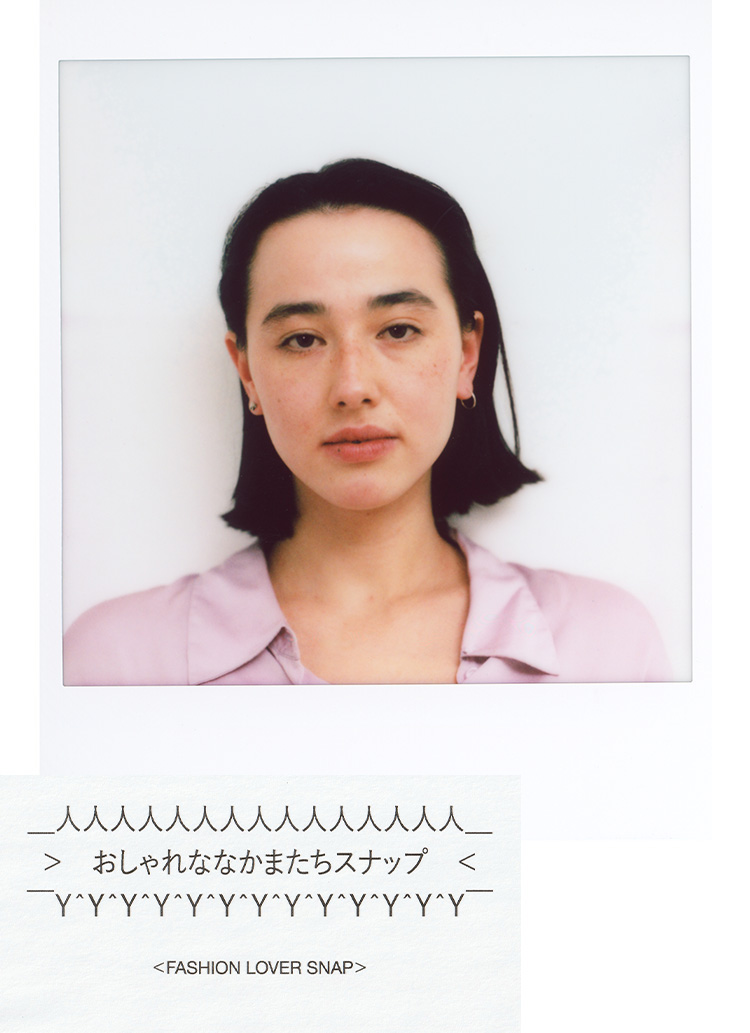Hiroshi Ozawa, who has a long career as a stylist and fashion director, is starting a new challenge in his birthplace, Ueda City, Nagano Prefecture.
."EDISTORIAL STOREAs the name suggests, the project is in the form of a store, but it is different from any other store that has ever existed, and could only have been created by Ozawa.
In simple terms, Ozawa selects, buys, and sells several years' old stock of domestic brands based on his taste and aesthetic sense, and this is what is called a "second market.
This may sound like there are already similar stores, but the secondary distribution market has not been led by brands or select stores, but by vendors and individuals, and this is a groundbreaking attempt when the primary distribution side (brands) officially allows transactions.
The reason why this is possible, I believe, is due solely to the trust, credibility, and good sense that Mr. Ozawa has built up over the years. . if Mr. Ozawa says so.
This project is perfectly in tune with the SDG-like spirit of the times. As soon as it was announced, it was featured on the front page of the Senken Shimbun newspaper, and has attracted a great deal of attention from around the world.
What was the inspiration behind the "Editoreal Store" project? Mr. Ozawa himself spoke about it once again.
PROFILE
. Involved in various aspects of fashion such as brand direction, store direction, etc., centering on stylist work. He is currently preparing to open an "EDISTORIAL STORE" next spring.
Why did you decide to open a restaurant?
Ozawa: I have been thinking about what kind of convergence I should make in my work as a stylist. I have been doing my best in my own way and have built a career, but I am running out of media or environments where I can demonstrate my creativity in styling with no limits.
It is true that the medium itself has changed considerably.
Ozawa: Also, everything has changed since Corona became a company. I think most of the changes were for the worse, but there were some things that could be viewed in a different way. For example, living in a second location was a big step forward after Corona. I was thinking that a U-turn or a second base might be possible, and the idea of a restaurant came to me.
Are there many stylists who run stores?
Ozawa: I think there are some. . Many people are not owners, but are involved in the direction of the company. This is not limited to stylists, but it is still client work no matter how far you go. I have always had the dilemma that business does not happen unless there is an order from somewhere.
You are passive, aren't you?
Ozawa: Yes. So in the 2000s, I made clothes, and in 2017, I started a brand called "EDISTORIAL," which is also the basis of this store. I've done a lot of things like that, but ideally, I wanted to do something in a field where no one else was doing it, and I wanted to do something I could do as an explorer.
. So that's how you came up with the idea for this project.
Ozawa: Yes, that's right. When I came up with the idea of proposing a select store with a new structure that was not outlet or off-price, I started to get excited, and as I talked with various people and gradually came into focus, I began to feel that it would be possible to do more and more. As I talked with various people, the focus gradually came into focus, and I began to feel that I could go further and further.
Did you come up with the idea of using the store's past inventory because you had a view of it from your experience in manufacturing?
Ozawa: That may be true. No matter how shapely the business is, cardboard (inventory) is created. I think everyone involved in fashion does this kind of work because they love it. For those people, I think it is a very sad experience to have to burn or bury their products because they don't sell. . I thought this project would be a way to turn that around.
Indeed . It seems to be a solution for many things.
Ozawa: It's not so much a problem to be solved, but it's a very personal experience that could be turned into a good direction. The fundamental problem in the fashion scene is that the value (price) drops by half after a season ends.
Yes. There is no other industry like it.
Ozawa: Yes . . Only fashion has developed such a system, and people are having trouble with it. The sale period is getting earlier and earlier, and the period for selling at the regular price is getting shorter and shorter. . I don't mean to take advantage of that, but as something I can do, I will take this approach first.
What was the reaction of the people around you when you heard about this project?
Ozawa: At first, I was rejected in a good way. The most common comment was, "There is no way there are any clothes left from years ago that you think are good, Ozawa-san. . They said that if something is left unsold, there is a reason why it cannot be sold.
I see. I see. . it would be difficult to find new value from the inventory, no matter how much you have in stock.
Mr. Hiroshi Ozawa, whom we spoke with. He is always charmingly dressed.
Ozawa: The people I talked to all had experience, so their words carry some weight, but when I went to talk to the brands I wanted to handle, I found that there is so much inventory that it goes beyond such things. . This is already a structural problem. So I thought, "This is the way I can find (something I think is good).
. perhaps you have so much inventory that it is unimaginable.
Ozawa: I think there used to be a mood of "don't touch" surplus inventory for manufacturers, but I think it's a good thing that they are now giving the go-ahead to such projects, perhaps from a sustainability standpoint.
. Yes, that's right. If it had been a few years ago, it might not have been possible.
Ozawa: I think there was a big problem when Burberry incinerated its stock a few years ago, and it became public knowledge. For example, Prada's "Re-Nylon. and so on.
. Lately, I think there are more and more things that are good as products.
Ozawa: While such movements were gaining momentum worldwide, I did not want to get involved in something so grandiose, but rather, as I mentioned earlier, I wanted to change my personal feelings and experiences for the better, and when I worked out what I wanted to do, I came to the conclusion that this was what is called sustainability in the world. I came to this conclusion after thinking about it.
How many years ago were the products you sell?
Ozawa: It seems it depends on the company and brand . At first, I was thinking of handling clothes that were about to be thrown away, but as I talked to them, I found samples and "B" items as well. Incidentally, it seems that Japan is the strictest country in the world against "B" products, and even items that would be perfectly acceptable overseas are sometimes turned away. I think that's how strict they are about quality.
I suppose that items produced overseas are sloppy and tasteful, but in a good way. . They are sloppy and tasteful.
Ozawa: So, the brands we are talking about now are not only holding unsold items, but also such items, so I think it would be good if I can show them all together in an interesting way. As I look at various things, my knowledge is also becoming deeper.
. You have also been posting on Instagram about your gradual purchasing trips.
https://www.instagram.com/p/CW7YcY8vB3m/
Ozawa: Yes. We will open the store around April of next year, so there is no place to put the items if we buy them too early, so we will go to the warehouse and make purchases before the end of the year. The interior will be completed around February of next year, so we will have the items stored there, prepare for the opening, and open the store around the time before Golden Week.
What will the store be like?
Ozawa: The second and third floors of a four-story building will be used as an "editorial store," with each floor measuring about 60 square meters, but I don't intend to cram it like a vintage clothing store. . The more clothes you have, the more you are full. . So I'm going to put a very limited amount of clothes on the floor.
So, can't you put that many brands?
Ozawa: Yes, that's right. At the same time, we are starting an e-commerce site, but if we can't put our products in stores and only put them on the e-commerce site, I think it would be rude to the brands that have gone to the trouble of participating in this project.
. Please tell us about the brands that are currently scheduled to participate.
Ozawa: I would say "NEPENTHES," "BEAMS," "BAYCREWS Group," "SCYE," "NEXUSVII. Saturdays NYC, KIJIMA TAKAYUKI, and MACKINTOSH.
You are an eminent group of people. What other initiatives are you involved in?
Ozawa: We don't make originals, but we do try to make something with a twist from the products we pick up. . For example, overprinting or embroidery. We categorize these second processing items as "mash-ups" and sell them. Upcycling means taking something that was originally cheap and modifying it to make it more expensive, right? I am not trying to do it that way, but rather, I want to make it easier for people to buy items that are more sensible and can be purchased at the front end of the upcycling process.
. And also, please tell us about the reuse of shoppers and fixtures in your stores.
Ozawa: I heard that apart from product inventory, there is also a surplus of materials or fabric parts, which is a problem. So, instead of putting up a so-called shopper, we would ask for leftover fabric from various sources, have local apparel makers sew them, and make bags out of them. We would attach a price tag to the finished patchwork shopper, explain the concept, and provide a breakdown of production costs, and sell the product at cost, with no profit added.
That's a nice try.
Ozawa: I am thinking of adding a "SPECIAL THANKS LIST" to this shopper. Like the credits in the end roll of a movie, I would like to include not only the brand name, but also the names of the OEM manufacturers and fabric makers.
The naming of the site is very nice, isn't it? . I am also drawn to your writing on your Instagram.
https://www.instagram.com/p/CXM3-stv5bv/
Ozawa: Thank you very much. I am thinking of writing a product description for each item, like a record recorder. . It will appear on both the tags attached to the items and on the e-commerce site. . It's kind of a scaled-down version of what I do on Instagram. . I thought it would be better to write about what I think is good from my own subjective point of view with passion.
I think it's great.Ozawa-san's installations. is really for everyone to see. . And I think there are people who would like to write such a recommendation in stores that sell new products.
Ozawa: Yes, I am sure they are there. The other day, "Brutus" did an article introducing a store from each of the 47 prefectures of Japan.Nagano Prefecture had a store in Ueda.. . about a 3-minute walk from the Edisto Real Store.
It's "HOWDAY", isn't it?
Ozawa: Yes. The store is run by a fashion YouTube star who is about 30 years old, and they stock a lot of clothes from brands such as "kolor" and "Maison Margiela," which I wondered if they would sell in Ueda.He sells it all on Youtube in a passionate way.. it seems. They seem to be getting a great response. . In my case, I'm old school, so it's a way of communicating well in writing.
I think the reason why the "SHOPPING ADDICT~Editor's Favorites" project has been so popular at Huinamu for so long is because we are recommending items that we genuinely like, right?
Ozawa: Yes, that's right. In this world, even if you hide something, it will be discovered, and people have come to think, "Let's do something that doesn't need to be hidden, something we don't want to be guilty of. It is important to convey what you think is good with 100% purity.
. I think you are right.
Ozawa: In such a situation, if you say, "I'm going to start directing a new store," but you are still based in Tokyo and go to Ueda once a week, I think the purity of your work will be diminished. If that is the case, I thought it would be better to go back and do it all at once.
Do you buy only what you like and want to wear? Of course, I don't think I would buy anything I don't like.
Ozawa: I also stock items that I wouldn't wear myself. For example, I probably wouldn't wear "NEXUSⅦ." myself. However, I had a long talk with the designer Tomohiro Konno for the first time the other day, and I was impressed by how straightforward he is about things, and I am glad that I asked him to join us.
I see.
Ozawa: Also, I only have one piece of clothing from "Norma T.D.," but when I met them through someone else's introduction, I thought their attitude was just too cool. In any case, what I do in the store is basically an extension of what I do on my Instagram, but as a stylist, I think I'll try to mix in a bit of edgy and classic pieces.
. The more I hear about this project, the more interesting it is. . I think most brands are in a situation where they have to deal with the inventory that is accumulating.
Ozawa: Yes, that's right. Personally, I would like to find items from brands that are selling so well that they may have almost no stock. Incidentally, I would like to use the term "LIVE STOCK" for the items we are selling this time, meaning that we are bringing "DEAD STOCK" back to life.
Are there currently no competitors in this form of business?
Ozawa: If you include large companies, I think there are many. In the U.S., there is "NORDSTROM rack" and "T.J. Maxx," and this type of business is completely established. . In Japan, I think it is still not that well established. However, I am not looking for economies of scale, so what I am doing is the same as what used clothing stores do, only I am handling new and used goods. In that sense, I don't know of any other places that do exactly the same thing.
. I think the mechanism is really wonderful, so it remains to be seen how much you yourself can attract people with your sense of style.
Ozawa: That's really true! That's where I have to improve myself now.
. But it's a very good business model, so there will definitely be a second and third place.
Ozawa: Yes, I think so. I think there will be a follow-up. However, the relationship between primary and secondary distribution is naturally not that good. I am going to open that up and become an official secondary distribution store,
I see. That may not be easy to imitate.
Ozawa: At first, it was like Don Quixote running into a windmill with a spear, but the more I talk to various people, the more I think it makes sense as one business model for solving a surprisingly current issue.
. I think so. In today's world, with so many choices, I don't think it will change forever that people are interested in what someone with good taste recommends as good.
Ozawa: You mean that I will select both expensive and inexpensive items, and then I will propose a narrative to it, as well as styling. After the store has been open for a while, I may post longer sentences on the Huinamu blog than what is written on the tag, or I may create content such as weekly styling. I would like to work well with the Huinamu blog in that way.










